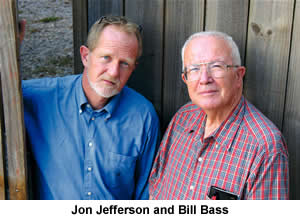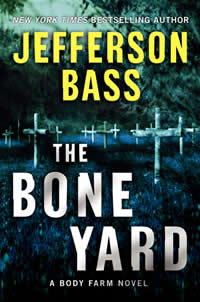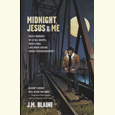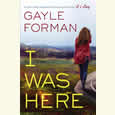Digging Up Evil
Jefferson Bass’s sixth Body Farm novel excavates unpleasant truths
Jefferson Bass (a pseudonym for the writing team of Jon Jefferson and Bill Bass) has mined the unfortunately rich history of true crime to inspire another fictional adventure of Bill Brockton, the alter ego of Bill Bass himself, a world-renowned forensic anthropologist. This time the story is a fictional retelling of the horrific history of the real-life Florida School for Boys, and The Bone Yard is the darkest outing yet for Brockton and his fellow forensic experts.
As surely everyone in the South—if not the country as a whole—knows by now, Bill Bass is the founder of the famous “Body Farm” at the University of Tennessee, where scientists study the decay of human corpses so that forensic scientists the world over will have the hard data they need to put murderers behind bars. Less glamorous, but equally important, is the work Bass and his colleagues have done in the study of the bones left behind by the dead. As a result of this effort, scientists and law-enforcement agents have a vast collection of data on the remains of people from all ages and ethnic backgrounds—data vital to identifying victims of crimes.
 In The Bone Yard, Brockton is challenged by two emotionally charged cases: the apparent suicide of a student’s sister, and the discovery of two old skulls in the rural Florida panhandle. Both cases test his unique skill—the ability to read victims’ stories in the bones they leave behind—as well as his psychological resilience. Both also illustrate shortcomings of the justice system in ways that will leave readers hoping they are exaggerated for literary effect but suspecting they are more reflective of reality than the typical TV melodrama.
In The Bone Yard, Brockton is challenged by two emotionally charged cases: the apparent suicide of a student’s sister, and the discovery of two old skulls in the rural Florida panhandle. Both cases test his unique skill—the ability to read victims’ stories in the bones they leave behind—as well as his psychological resilience. Both also illustrate shortcomings of the justice system in ways that will leave readers hoping they are exaggerated for literary effect but suspecting they are more reflective of reality than the typical TV melodrama.
In particular, the story told by the bones found on the grounds of an abandoned reform school for boys is a disturbing reminder that evil can exist—even thrive—within an otherwise caring society. The abuse that was heaped upon the students at the Florida School for Boys, torture which is portrayed in The Bone Yard with very little fictional enhancement, is enough to distress even the most jaded readers of crime drama. The institutional sadism he uncovers certainly upsets the normally easygoing Brockton: “I felt something else, too, something I’d never felt before during an excavation: I felt tears streaming down my face as the story of the boy’s death emerged from the ground.”
 Beginning at the Body Farm and progressing through Georgia and Florida with a side-trip to Washington, D.C., The Bone Yard is another reminder of how universal crime is, how evil follows people wherever they go. “Hell, everything’s evidence of something, Doc,” one of Brockton’s fellow investigators notes. “This whole world’s one big crime scene. The trick’s figuring out what to send to the lab. And where to stop stringing the tape.”
Beginning at the Body Farm and progressing through Georgia and Florida with a side-trip to Washington, D.C., The Bone Yard is another reminder of how universal crime is, how evil follows people wherever they go. “Hell, everything’s evidence of something, Doc,” one of Brockton’s fellow investigators notes. “This whole world’s one big crime scene. The trick’s figuring out what to send to the lab. And where to stop stringing the tape.”
It is a nasty world out there, and the darkness of this book isn’t substantially lightened by the more “routine” crime revealed in the secondary plot of the apparent suicide. But Jefferson Bass does at least manage to make the gloom interesting by providing the high level of forensic-science detail for which the team has become known. Once again there are enough discussions about bones and blood and gunshot trajectories to impress on the lay reader the level of effort expended by the good guys to right the wrongs of the criminal class. The authors’ affection for the hard-working members of the law-enforcement community also comes through in this sixth edition of Brockton’s adventures. If there is light in The Bone Yard at all, it’s the fact that there are a lot of good, smart people out there trying their best to make things better.
The Jefferson Bass team will discuss The Bone Yard at locations in Oak Ridge, Knoxville, Farragut, Athens, and Maryville. Check Chapter 16’s events page, here, for details.
To read Chapter 16’s interview with Jon Jefferson and Bill Bass, click here.


